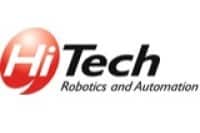Funding an EOT
To fund an EOT transaction, the business would generally utilise surplus cash held in the business as initial consideration, whilst deferring the remaining amounts payable (typically paid in monthly installments) throughout a pre-defined future period (known as “deferred consideration”). In some cases, external funding in the form of borrowings is required.
Once a valuation has been calculated and agreed by the shareholders, it is commonplace to prepare a cash flow forecast to gauge how much cash headroom the business requires in order to operate going forward. Excess cash already in the business can therefore be used to fund the deal on day one, known as initial consideration.
Deferred consideration is paid to the shareholders over a pre-determined future period out of profits generated in the business under the new ownership. This is essentially a loan from the existing shareholders to the trust which the trust utilises to purchase the existing shareholders shares.
In some circumstances, the business will require external funding in the form of bank borrowings in order to boost the initial consideration payable to the shareholders. Of course, in this instance, it is expected that the deferred amounts payable will be lower however there will also be loan repayments to make to the external funders. Interest rates payable to external funders can be higher than rates charged on deferred consideration by the shareholders.
When structuring the deferred consideration, it is important to ensure that the loan is as flexible as possible when it comes to the timing of future payments, to ensure the business always retains adequate cash headroom to operate effectively. At Hawsons, our expert EOT advisors are on hand to ensure that you secure the best funding solution for your EOT transaction.
Our EOT advisers
We have advised many businesses to complete their transition to employee ownership. Hawsons have been working with businesses on EOTs since they were introduced in 2014, completing our first deal in 2016.
We are a member of the Employee Ownership Association who represent organisations that are employee-owned or transitioning to employee ownership across the UK.
Pete Wilmer
Corporate Finance Partner

Pete Wilmer
Senior Partner
Pete leads the Corporate Finance offering across the firm, having has spent much of his career within a large international accountancy firm and corporate banking before returning to Hawsons, where he started. Working with businesses of all sizes, Pete has an exceptional breadth of experience which he brings to the benefit of clients.
An early adopter and passionate believer in good employee ownership, Pete has helped numerous businesses transition to employee ownership and works extensively to promote the employee ownership model.
Related content
TMS Europe complete transition to an Employee Ownership Trust
Peter Wilmer and Jack Ware, members of the Hawsons Corporate Finance team, acted as lead advisors for TMS Europe Limited’s (“TMS”) transition into employee ownership. Ryan Fitzpatrick from Shakespeare Martineau LLP provided legal advice on the transaction. TMS Europe...
Hi-Tech Automation – 12 months into Employee Ownership
Employee Ownership is where the whole or part of a Company is owned by, or on behalf of, its employees. The government introduced some new and relatively generous tax reliefs for employee-owned companies in 2014 and since then Employee Ownership Trusts (“EOTs”) have...
Employee ownership trust problems
In this article, we are going to outline some of the problems that might arise if the transition to employee ownership is not managed and advised on correctly.Valuation of the company When selling your business to an EOT it is very important that you keep the...




